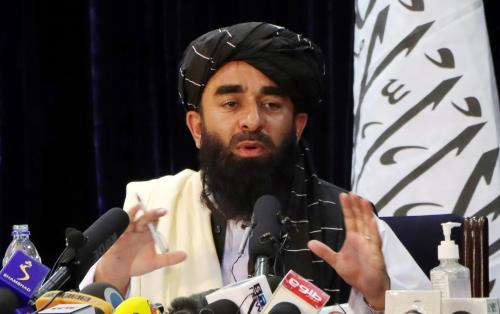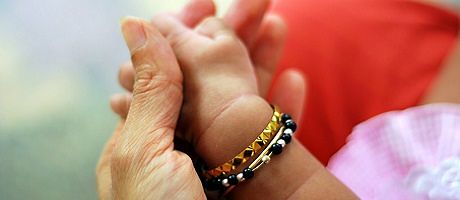China’s rise as an economic powerhouse has fueled a growing debate about the relationship between economic growth and regime type. The performance of rising democracies like Turkey, however, has gotten short shrift.
Research has shown that the longer a country is ruled democratically, the better it performs across a variety of governance and development indicators, including economic performance.[1] Five rising democratic countries at different stages of democratic consolidation and economic development – India, Brazil, South Africa, Turkey and Indonesia, known collectively as IBSATI – exemplify this positive correlation between regime type and economic and social progress. They already excel regionally and are increasingly asserting themselves as important international players on issues of governance, economics, and peace and security.
These five countries emerged in the last few decades from legacies of military rule, colonial control, apartheid, authoritarianism and statism to more dynamic, decentralized and democratic societies. They each made distinct choices to transition towards greater openness, both politically and economically, setting them on a path towards renewed prosperity and growth with impressive reductions in poverty and inequality. Their chosen paths toward democratic development helped fuel their own progress in providing better livelihoods for their citizens. It is precisely these trends that have facilitated a more ambitious, activist and credible claim for leadership at the regional and global levels.
For each of the IBSATI countries, a historic and path-altering decision set the stage for dynamic growth and development:
- In 1985, Brazil returned to democracy after 21 years of military dictatorship.
- For India, the 1991 economic reforms transformed its economy from a restrictive state-driven model to a more open system that catalyzed consistent and high growth.
- South Africa saw the end of apartheid rule in 1994, ushering in a new era of majority-rule democracy, exemplified by the free and fair election of President Nelson Mandela.
- Indonesia turned to democracy in 1998 when President Suharto tendered his resignation in the wake of the Asian financial crisis and in the face of corruption charges.
- Turkey’s transition from military-dominated rule crystallized in 2002 when general elections led to the first single-party government since 1987 and the first two-party parliament in 48 years.
These critical junctures launched the IBSATI countries into the rising leaders they are today.
As each country turned toward liberalizing politics and opening their economies, their Gross Domestic Products (GDPs) exploded. Brazil’s GDP was ten times as large in 2012 as it was just prior to its turning point in 1985. By comparison, India’s was six times as large, Indonesia’s five times as large, and South Africa and Turkey’s three times as large as the years leading up to their respective turning points. GDP per capita has also grown in all five countries, though not quite at the speed of GDP writ large, hinting at the persistent (and fluctuating) income disparities in all five countries. More recently, real GDP growth rates have slowed in these countries with the downturn in the global economy, but in the initial fallout of the 2008 financial crisis, these emerging economies outperformed advanced economies and drove world economic growth, earning recognition on the world stage.
IBSATI countries, which as democracies with free and fair elections have become more responsive to popular demands, are using this economic strength to reinvest in their populations, spending more every year on education and health expenditures. As a result, literacy rates have improved substantially (especially in India, which increased literacy by 54% since 1991), with rates exceeding 90% in nearly all IBSATI countries. Infant mortality rates have fallen in all five countries – most dramatically in Brazil, which experiences a fifth of the number of losses it did before 1985, and Turkey, which has seen a 60% decrease in the last ten years. Maternal mortality likewise has fallen except in South Africa where rates are rising, though it still performs on par with or better than its neighbors. Similarly, in all five countries, life expectancies have grown longer since the turning points identified, though AIDS-riven South Africa lags far behind. Nevertheless, the populations of these countries remain quite youthful with relatively low median ages ranging from 24.9 in South Africa and India to 30.5 in Brazil. The zero- to 14-year-old crowd clocks in at a healthy 25-30% of the population in all five countries, offering a flourishing generation of healthier and better-educated workers and voters.
In their quest to improve their political and economic performances, the IBSATI group continues to liberalize their economies. Through its ongoing customs modernization program, South Africa has reduced the time required to import and export goods, making it a more attractive trading partner and facilitating faster transactions for its neighboring southern African countries too.[2] South Africa ranked 39th out of 185 countries in ease of doing business in the World Bank’s 2013 “Doing Business” report. India likewise has been the top improver in its region since 2005, having recently reduced the time it takes to secure construction permits. By global standards, however, they still have a long ways to go: India still ranked 132nd overall given other impediments (length of time to start a business, poor enforcement of contracts, etc), while Brazil ranked 130th, Indonesia 128th, and Turkey 71st.
Over the past decade, the IBSATI democracies have diversified their trade relations, shifting away from trading with advanced economies and towards other emerging economies (both other IBSATI countries as well as neighbors) in varying degrees. Brazil, Indonesia, South Africa and Turkey now import about the same amount from emerging economies as from their advanced economy trading partners, while India now imports substantially more (65%) from other emerging economies than advanced economies, a shift that took place in 2006 and has steadily grown more entrenched.
As the IBSATI countries expand their economies and deepen their trade and investment ties with their neighbors and the world, as well as with each other, they are also aspiring to greater leadership roles on the regional and global stages. On issues of democracy, human rights and rule of law, however, their approaches tend to be mainly multilateral in nature and cautious. Indonesia has capitalized on its economic leadership in the Association of Southeast Asian Nations (ASEAN) to play a key role in the development of ASEAN’s Intergovernmental Commission on Human Rights (AICHR) and the Bali Democracy Forum, two soft instruments for dialogue and cooperation on sensitive issues. Turkey has become a strong voice for democratic accountability and human rights protection in turbulent places like Egypt, Syria and Somalia. South Africa has played a leading role in the construction of the New Economic Partnership for African Development (NEPAD), a mechanism to upgrade the region’s standards for democratic governance, but avoided more direct action in repressive Zimbabwe. Brazil displays leadership in Haiti where it has led the UN peacekeeping mission since 2004, helping it to stabilize along democratic lines. These efforts contribute to the impact of their soft power prowess and credibility as leaders.
Enabled by their economic progress and aspirations for international leadership, India, Turkey and Indonesia became major contributors to UN peacekeeping forces, both in numbers and as a percentage of the world total. As of September 2013, India is the third largest contributor of troops to UN peacekeeping forces worldwide,[3] and in 2012 its peacekeeping contributions were 224 times what they had been in 1991. That same year, Indonesia’s contribution was 22 times larger than in 1998 and Turkey’s had tripled since 2002. This tangible investment in international security reveals new levels of buy-in to international institutions and suggests IBSATI democracies could do much more.
The IBSATI countries also continue to consolidate and strengthen as democracies, allowing them to serve as relevant examples for transitioning countries. For example, nearly all improved markedly in measurements of political and civil liberties following their transitions. Improvements, however, have hardly followed a linear path and remain unfinished business, as is the case in all democratic countries. India’s performance, for instance, actually worsened in the years immediately following the 1991 economic reforms, receiving a Freedom House rating of partly free from 1991 to 1997, but has maintained an improved score and a “free” rating in the years since. All five countries have experienced less freedom of the press, a phenomenon observed worldwide in recent years. The recent social demonstrations in Brazil and Turkey show that their democracies are robust and vibrant; in Brazil, the protests prompted concrete policy changes and praise from President Dilma Rousseff who said “Brazil woke up stronger.”[4] In Turkey a young, educated electorate highly literate in new media began exercising their liberties and holding their government accountable beyond the voting booths.[5] If these trends continue, IBSATI countries’ soft power by extension should grow, particularly with regards to countries trying to make their own difficult transition to democracy.
These five rising democracies, like all democracies, are works in progress. But the IBSATI countries have made tangible strides in both their delivery of development and exercise of democracy since their respective historical turning points. All five perform well regionally and have been identified as rising players on the world stage, whether as members of BRICS or IBSA, as global swing states, as aspiring members of the UN Security Council, or as leaders shaping the future of regional bodies. They benefit from the complex interplay between their economic development and the open societies their citizenries struggle daily to improve. If they continue to build on their successes, they are likely to establish themselves as regional and global leaders willing to tackle entrenched political and economic challenges side-by-side with more developed powers.
This article was originally published in Turkish in the December edition of Görüş, a publication of the Turkish Industry and Business Association (TUSIAD).
[1] John Gerring, “Democracy and Development: Legacy Effects,” in The Dynamics of Democratization: Dictatorship, Development, and Diffusion, Ed. Nathan J. Brown, (Baltimore: The Johns Hopkins University Press, 2011), pp. 212-238.
[2] International Bank for Reconstruction and Development/The World Bank, “Doing Business 2013: Smarter Regulations for Small and Medium-Size Enterprises”, 10th edition, http://www.doingbusiness.org/~/media/GIAWB/Doing%20Business/Documents/Annual-Reports/English/DB13-full-report.pdf, Accessed November 4, 2013.
[3] For more, see United Nations Peacekeeping Data Dashboard, http://www.un.org/en/peacekeeping/resources/statistics/contributors.shtml, accessed 5 November 2013.
[4] Todd Benson, “Roussef salutes Brazil protests, cities cut bus fares,” Reuters, June 18, 2013, http://www.reuters.com/article/2013/06/18/us-brazil-protests-rousseff-idUSBRE95H10B20130618, accessed November 5, 2013.
[5] Fiona Hill and Hannah Thoburn, “We Are Not Cattle: Protestors in Turkey and Russia,” Brookings UpFront blog, June 24, 2013, https://www.brookings.edu/blogs/up-front/posts/2013/06/24-we-are-not-cattle-protestors-turkey-russia-hill-thoburn, accessed November 8, 2013.



Commentary
The Path to Progress? How Democratic Development Drives Five Rising Leaders
February 5, 2014